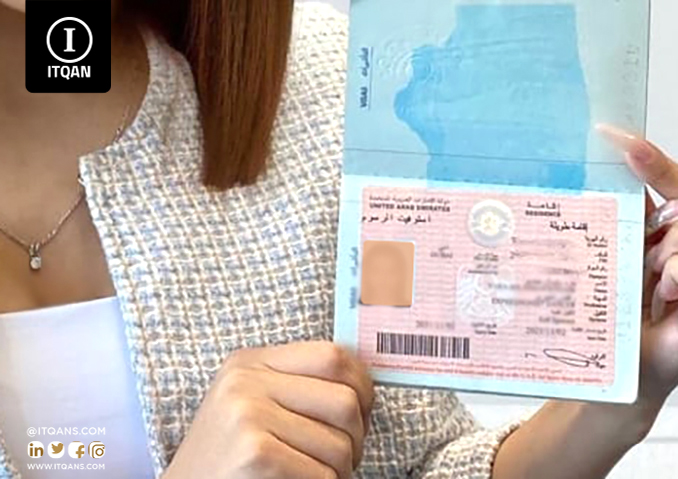Opening a bank account in Dubai for non-residents is a vital step for investors, businessmen, or individuals looking to take advantage of the financial and economic opportunities that the city offers. Dubai, thanks to its strategic location as a global financial center and the status of its thriving economy, offers a variety of banking services that meet the needs of individuals and companies of different nationalities.
Dubai is characterized by an advanced banking environment that supports modern technology and provides a range of services that make opening a bank account a smooth and easy process. Banks in Dubai offer a wide range of accounts to suit different needs, from current accounts to savings accounts and investment accounts. Thanks to financial security and innovation, Dubai provides an ideal platform to manage and invest money effectively.
However, opening a bank account in Dubai for non-residents requires compliance with a set of conditions and procedures. Individuals must provide specific documents, such as a passport and entry or residence visas, as well as proof of source of income and current address. There may also be additional requirements regarding the minimum account balance and providing information about planned financial activities.

Opening a bank account in Dubai for non-residents
جدول المحتوى
ToggleHow to open a bank account in Dubai for non-residents
Opening a bank account in Dubai for non-residents can be a demanding but possible process. Here are the main steps you need to follow:
- Choosing a bank: Start by choosing the bank you want to open an account with. Terms and services vary between banks, so it is important to compare the available options.
- Fill out the form: Fill out the account opening request form. You can usually obtain the form from a bank branch or through the bank’s website.
- Visit the bank: The bank may require you to visit one of its branches in Dubai to submit your application. Some banks offer online account opening services, but it may require visiting a bank branch to complete the process.
- Minimum Deposit: The bank may ask you to deposit a certain minimum amount to open the account.
- Account review: After submitting the application, the bank will review and verify the documents. It may take a few days to get approved and open the account.
- Receive account details: After approval, you will receive your account details, including account number and debit or credit cards if required.
Documents required to open a bank account for non-residents
When you start looking to open a bank account in Dubai for a non-resident, you may usually need to provide a set of basic documents. Here is a general list of required documents that may include:
- Passport: A passport that clearly shows identification information must be presented.
- Entry visa: In some cases, you may need an entry visa valid for a certain period.
- Email and contact address: You may be asked to provide an email address and contact mobile phone number.
- Proof of address document: You may have to provide a utility bill (such as an electricity or water bill) proving your residential address.
- Financial Information: You may be asked to provide information about the source of the funds you intend to deposit into the account.
- Application form: The bank often needs to fill out an account opening application form.
- Official signature: It may be necessary to sign official documents at the bank.
Establishing a company in Dubai
Establishing a company in Dubai is an important strategic step in the business world, thanks to the dynamic business environment and facilities provided by the city. Dubai, thanks to its strategic geographical location as a global business centre, offers many advantages to new businesses, ranging from tax incentives to modern infrastructure. To establish a company in Dubai, you must first determine the appropriate type of legal entity, such as a limited liability company (LLC), a branch of a foreign company, or a company in a free zone. After determining the entity type, a trade name must be chosen that is in line with the standards of the Dubai Department of Economic Development.
The next step includes submitting an application for a commercial license, a procedure that requires submitting a set of documents such as a copy of the passport, the lease contract for the company’s headquarters, and the business plan. Once the license is obtained, the company must be registered with local authorities, including the Department of Economic Development and the Securities and Commodities Authority if necessary. In addition, you may need to open a business bank account and provide additional documentation regarding management and employees.
Dubai free zones are a popular choice for many businesses, as they offer benefits such as full foreign ownership and tax exemptions. However, there may be special requirements depending on the free zone chosen. Be sure to check local laws and corporate directives to ensure compliance with all requirements. By following these steps and understanding local regulations, you can successfully establish your company and take advantage of the many business opportunities that Dubai has to offer.
Steps to establish a company in Dubai
Establishing a company in Dubai requires following specific steps to ensure compliance with local laws and taking full advantage of business opportunities. Here are the steps to establish a company in Dubai:
- Determine the type of company: Choose the type of legal entity that best suits your business, such as a limited liability company (LLC), a joint stock company, a branch of a foreign company, or a company in a free zone.
- Choose a trade name: Select a trade name that complies with local laws and does not conflict with other registered names. The name must be clear and appropriate to the company’s activity.
- Obtaining initial approval: Submit a request to obtain initial approval from the Department of Economic Development in Dubai or the competent authority in the free zone. You will need to submit documents such as a passport and business plan.
- Signing the lease: Sign a lease for the company’s headquarters. The address must comply with licensing requirements.
- Preparing legal documents: Prepare and document the company’s articles of association and articles of association. This may require the use of an attorney or legal services office.
- Submit an application to obtain a license: Submit an application to obtain a commercial or industrial license from the Department of Economic Development or the competent authority in the free zone. You will need to provide the necessary documents such as the lease contract and legal documents.
- Open a business bank account: Open a business bank account in the name of the company. The bank may require documents such as a business license and articles of association to be submitted.
- Registration of the company with government agencies: Register the company with the relevant government agencies, such as the Securities and Commodities Authority, if the activities require this.
- Apply for Work Visas: Apply for work and residence visas for eligible employees.
- Complete insurance procedures: Carry out the required insurance procedures, such as workers’ insurance and commercial risk coverage.
- Registration with tax authorities: If you work in a field that requires tax registration, register your company with the relevant tax authorities.
The cost of establishing a company in Dubai
Setting up a company in Dubai requires considering a range of associated costs that can vary based on the type of company, its location, and the requirements of the business. In general, the main costs include:
- License cost: includes fees for obtaining a commercial or industrial license from the competent government authorities, whether it is the Department of Economic Development in Dubai or the free zone of your choice.
- Office rent: The cost of renting a commercial premises, which depends on the location and size of the office. Prices can vary widely based on geographic location and available amenities.
- The cost of establishing a company: includes fees for preparing legal documents, such as articles of association and articles of association, in addition to any legal fees that may be required.
- Opening a Bank Account: There are fees associated with opening a business bank account, as well as minimum deposit requirements that may vary from one bank to another.
- Insurance: Insurance costs for the company and employees, such as accident and health insurance.
- Work and Residence Visas: Fees for work and residence visas for employees, which also include immigration and visa processing fees.
- Other operational costs: such as the costs of office furniture, equipment, and supplies, in addition to additional licensing expenses if there is a need for special activities.
In conclusion, opening a bank account in Dubai for non-residents represents a vital step for any individual or company looking to take advantage of the economic and financial opportunities in one of the most vibrant cities in the world. Dubai, as a global financial center, provides a variety of banking options that meet the needs of foreign investors, which enhances the possibility of managing money and financial transactions effectively and smoothly.
Choosing the right bank is an essential part of the account opening process, as requirements and services vary between banks. It is essential to have complete and accurate documents, such as passport, proof of address, and additional data depending on the requirements of the specific bank. These measures contribute to ensuring that the bank adheres to security standards and gives you access to a range of banking services that support your financial goals, whether you are seeking to manage money, transfer it, or benefit from loans and other financial services.
Furthermore, it is advisable to have a clear understanding of bank fees and minimum balance requirements, as they vary from bank to bank. The ability to access support and assistance services through bank branches or digital channels can also be an important part of the account opening experience.
The most important frequently asked questions about opening a bank account in Dubai for non-residents
Can non-residents open a bank account in Dubai?
Yes, non-residents can open bank accounts in Dubai. However, documentation and procedure requirements may vary from one bank to another.
Do I have to visit the bank in person?
In most cases, you will have to visit the bank in person in Dubai to complete the account opening process, although some banks may provide services online or via mail.
What are the minimum deposit requirements?
The minimum deposit varies between banks and may range from a few hundred to thousands of AED. Check with your specific bank for exact requirements.
Can I open a bank account in foreign currency?
Yes, most banks in Dubai provide options to open accounts in foreign currencies. Make sure to check the account types available with your bank.
What are the fees associated with opening an account?
Fees may include account opening, monthly or annual maintenance fees, and additional fees such as fees for transfers or withdrawing funds from ATMs.
Can I get a debit or credit card?
Yes, the bank can offer you a debit or credit card when you open the account, but there may be additional requirements or annual fees.
















